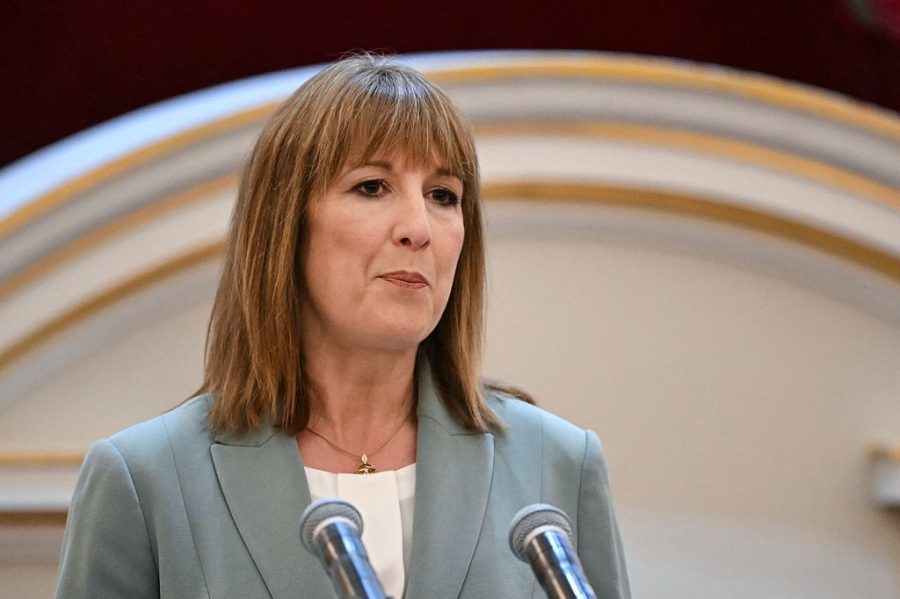If Rachel Reeves was being judged on her ability to come up with excuses, then she’d be top of her class. From Brexit to fourteen years of Tory government, from the Truss mini-Budget to the weather, the Chancellor has compiled a comprehensive list of reasons why she needs to hike taxes in this month’s Budget and why it’s taxpayers who have to tighten their belts, rather than the Treasury.
Even as the economic pressures are mounting, Reeves’s answer is always the same: squeeze households harder
When she stands up on the 26th of November to deliver her second Budget, Reeves will do so against a backdrop of genuine fiscal crisis. Government debt is around 100 per cent of GDP, with 30-year gilt yields are at 5.2 per cent, higher than the post-mini-Budget spike back in 2022. This gives the UK the dubious honour of the G7’s most expensive borrowing costs. Inflation remains stubborn at 3.8 per cent, almost double the level when Labour took office. The tax burden, already at a 76-year high, is set to reach a record high next year.
Yet even as the economic pressures are mounting, Reeves’s answer is always the same: squeeze households harder. Against this backdrop, it’s worth understanding what this relentless tax appetite actually means for ordinary families over the course of their lives.
Our latest research at the TaxPayers’ Alliance reveals that the average household will pay £1,277,580 in tax over a lifetime. That’s not a typo. To put it another way, households will work for 19.3 years purely to pay tax, leaving nearly two decades of their entire working lives handed over to the state.
This isn’t just about income tax (though that alone amounts to £571,740 over a lifetime). Add in VAT at £194,505, National Insurance contributions at £179,070, council tax at £99,690, and employer National Insurance at £45,330 and you start to see how deeply the state reaches into every aspect of economic life. Even in retirement, families continue to pay another £164,370 over 15 years.
Since the late 1970s, the lifetime tax bill has almost doubled in real terms, rising from £644,000 to today’s £1.28 million. While there was a modest 5 per cent decrease from 2021-22 as inflation outpaced nominal tax rises, we remain near historic highs. And Reeves’s approach suggests we’re heading only one way: up.
Here’s where the fiscal irresponsibility becomes truly obscene. While Reeves and her colleagues talk about “investment” and ‘growth’, the reality is that taxpayers’ contributions increasingly go not towards frontline services but towards paying for the past. It would take the lifetime tax contributions of 2,149,846 households, more than 2 million families working their entire lives, just to pay off the current national debt. Add in unfunded public sector pension liabilities, and another million households would need to devote their entire lives to the task.
That’s over three million families whose entire economic contribution goes not to public services, but to cleaning up the mess left by politicians who never learned to live within their means.
But the real kicker is the interest bill. In 2025-26, the government is expected to spend over £110 billion on debt interest alone. That’s equivalent to over 85,000 households working their entire lifetimes just to pay one year’s interest payments. Not for schools, hospitals or defence – just interest on yesterday’s borrowing.
This represents a quiet but profound breakdown of the social contract. When we pay taxes, the implicit deal is that we’re funding public services – policing, defence, education, healthcare, and so on. We are not signing up to bankroll politicians’ desperate attempts to buy popularity through endless spending promises – yet that is exactly what’s happening. That £110 billion in annual debt interest could fund genuine infrastructure investment, strengthen national defence, or – a radical thought – be left in taxpayers’ pockets where it belongs. Instead, it represents the price of decades of politicians treating the public purse as their personal credit card.
Reeves faces a clear choice on the 26th of November. She can accept that sustainable public finances require restraint, or she can continue the ruinous cycle of borrowing today and billing taxpayers tomorrow. And if her record of blame shifting so far is any indication, she’s already chosen the latter.







Comments